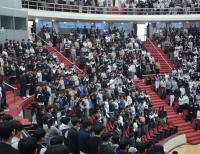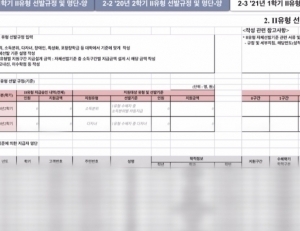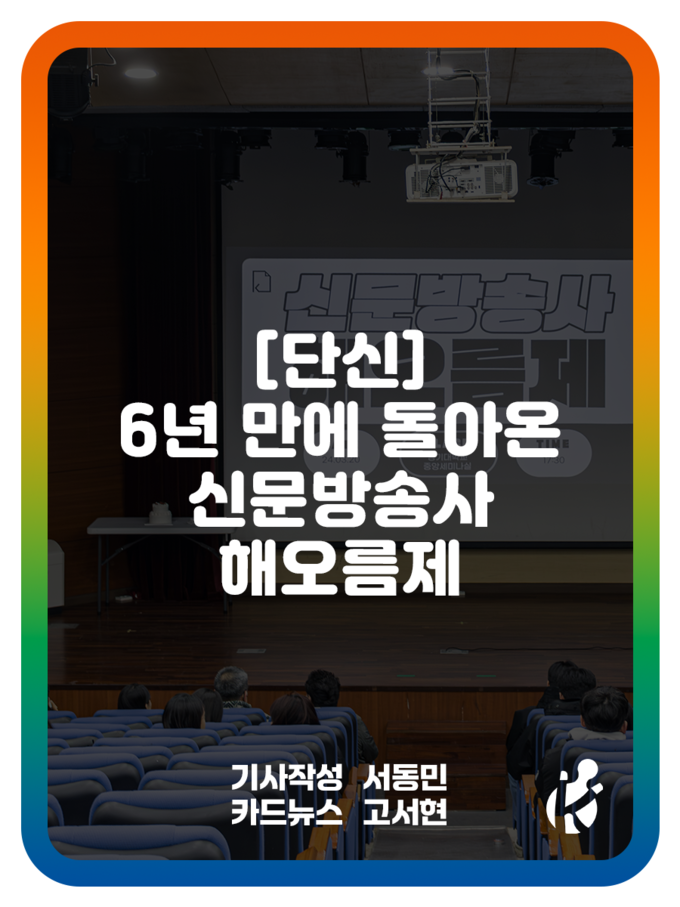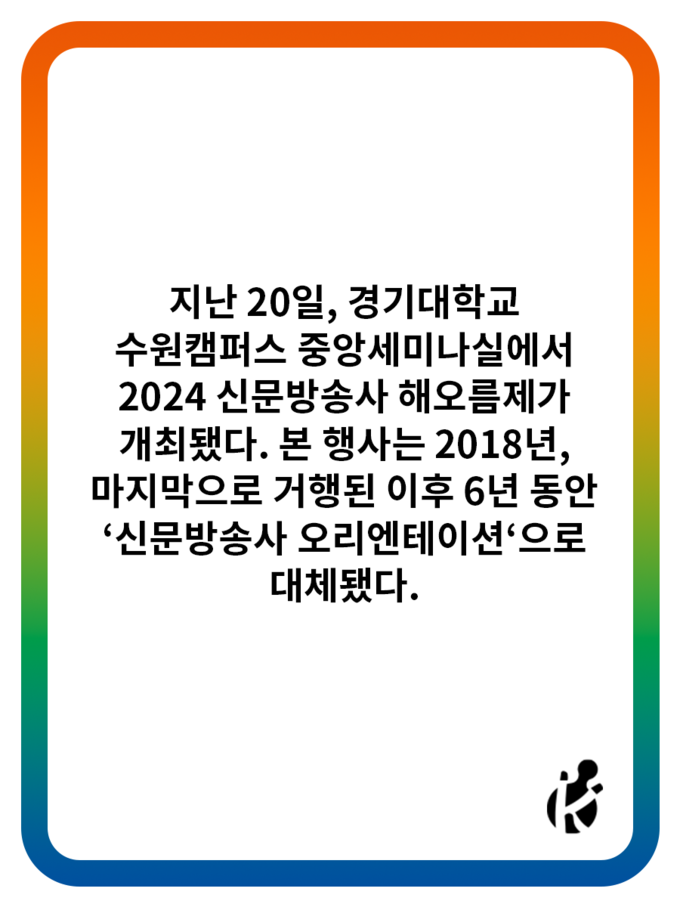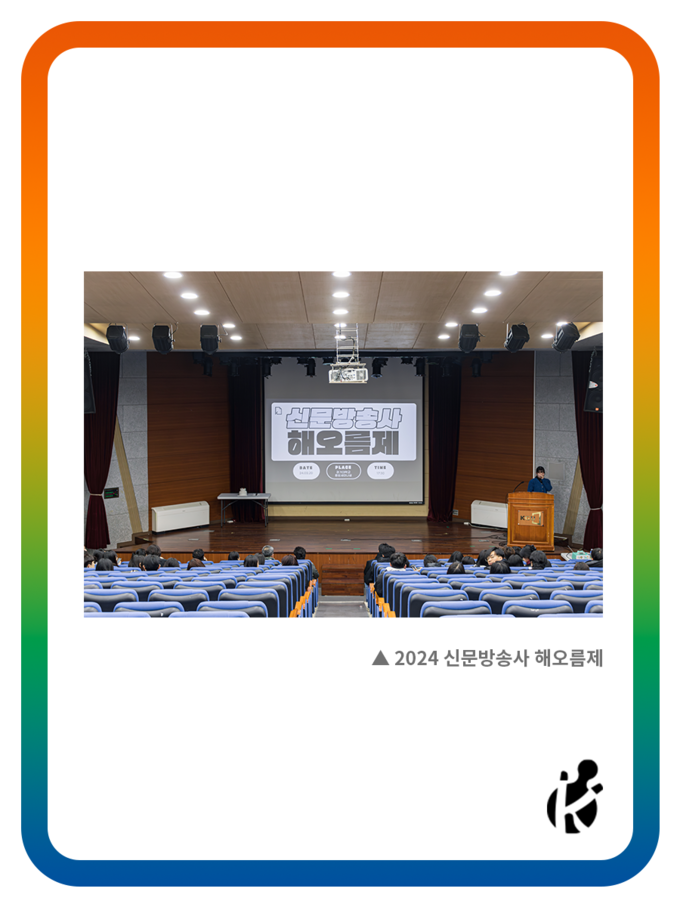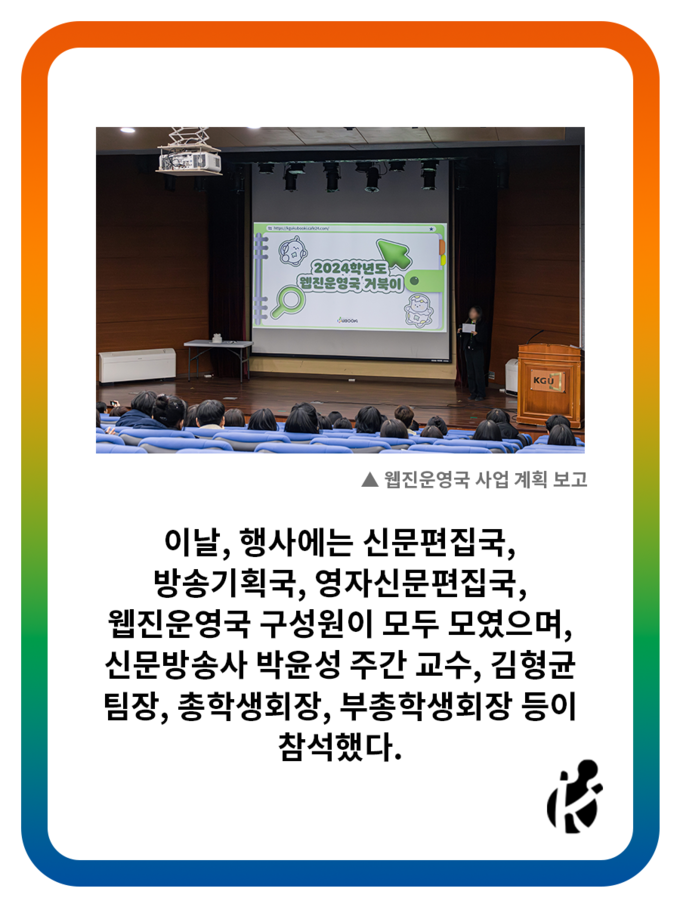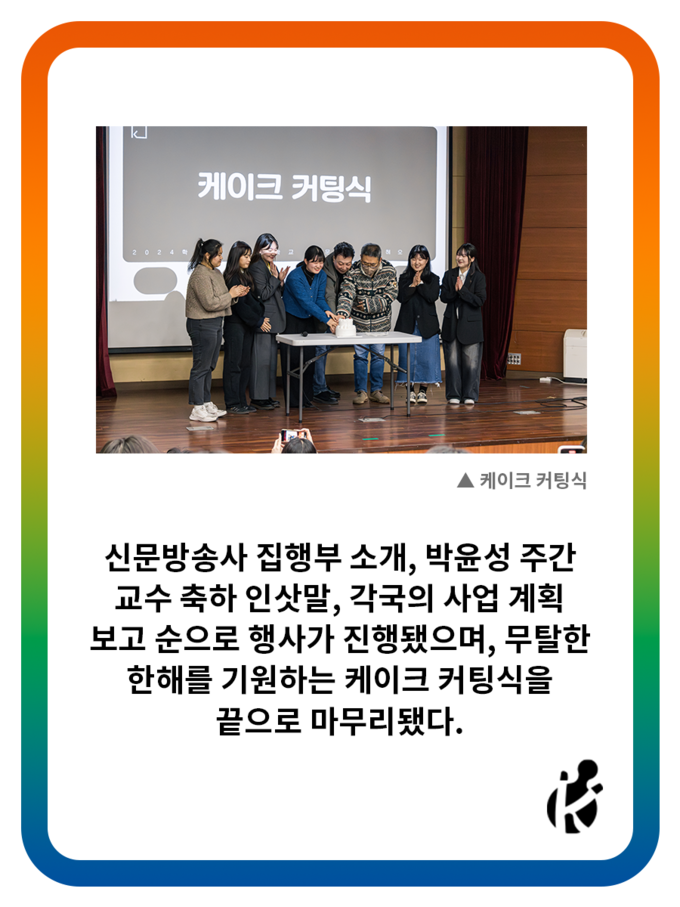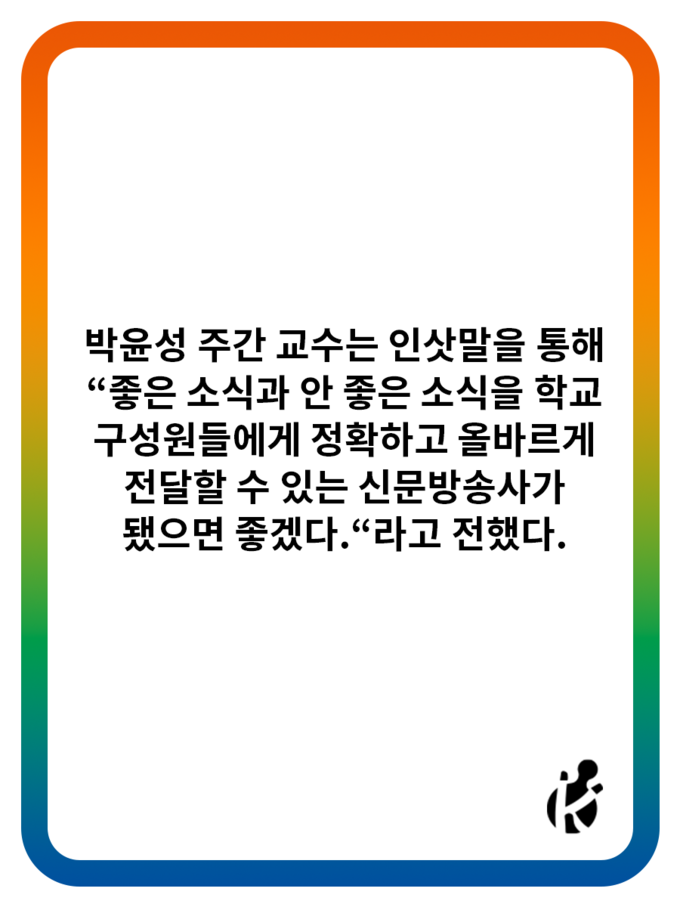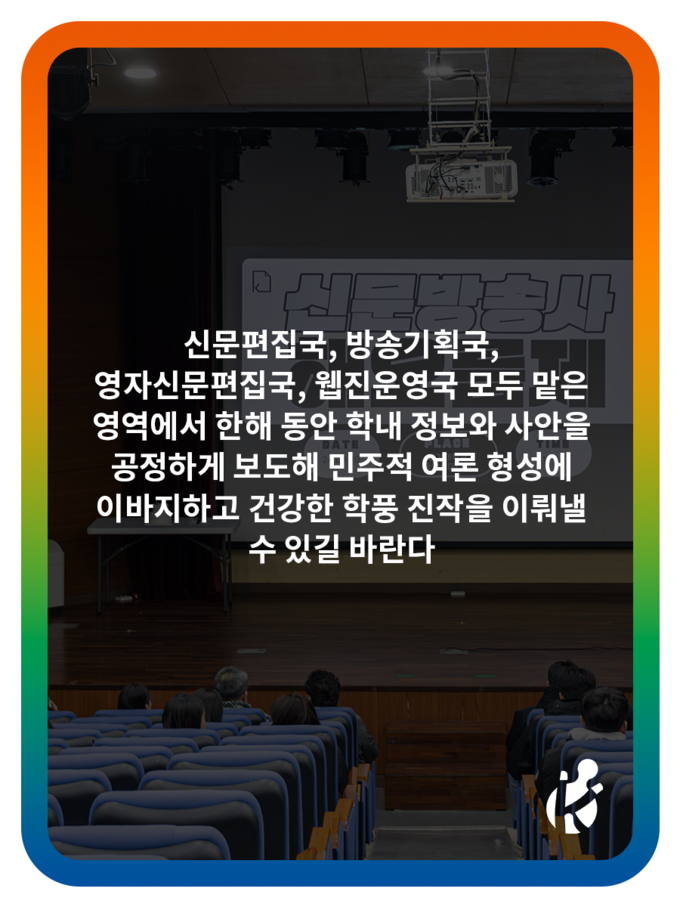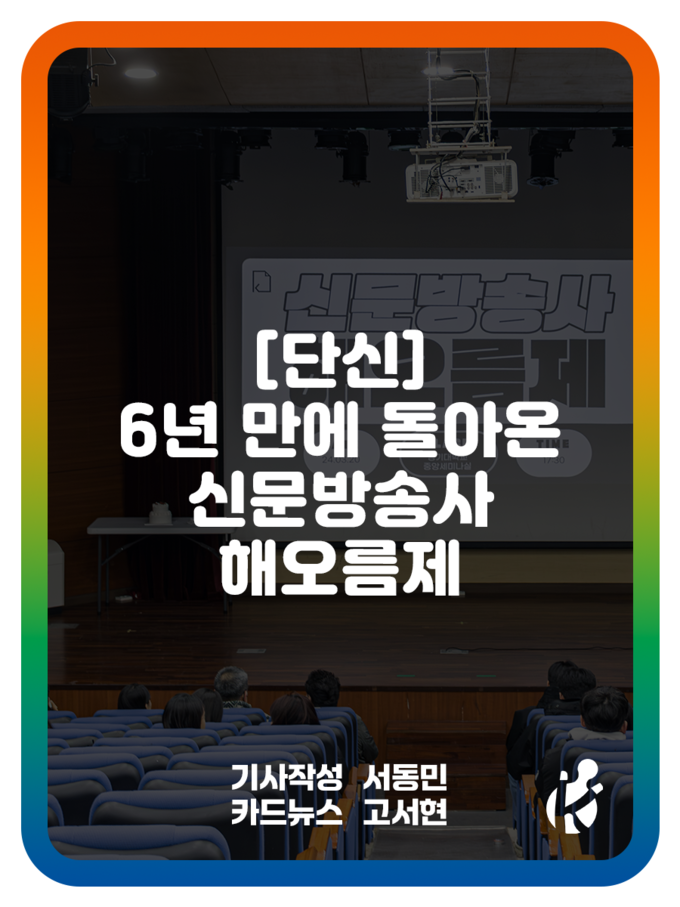Criticism against the student council continues. Since the Sentimental Core incident, it has been amplified, and voices calling for resignation have been heard every day. At this point, Pharos has decided to look at the event from various perspectives from beginning to end. In this process, Pharos has tried not to be biased toward either side.
Starting with the Sentimental Core incident, voices are increasing, criticizing the student council and urging them to resign, centering on the school community Everytime. The incident became known through the Everytime community around September 3, 2021. An anonymous author witnessed five people gathering and drinking alcohol at Sentimental Core, a school restaurant, around midnight on the 3rd and reported it with a photo. It was reported that the student council president was among the group. The president of the student council announced his statement at 15:13 on September 4. The statement was as follows. After receiving a tip-off from a member of the student council, he confirmed the facts with the representative of Sentimental Core and accompanied him to the scene. Graduates who graduated more than a decade ago gathered there. He asked them to leave and appeased them, serving coffee and drinks. Despite the announcement of the student president’s statement, many suspicions and questions remained. Some of them include: “Misunderstanding was raised by a late statement of position.” “How did the graduates who entered there know that it was open?” and “Why did the president of the student council go, not security or the police?” On September 6, an anonymous student who claimed to be the first reporter pointed out two things. The first is the probability of the event. Why did the student president go there, not a security officer, in the case of someone invading the school facility? The second was cited as a late response and lack of communication. In addition, the first anonymous informant added that he/she filed a complaint with the district office and reported it to the police. On October 5, the student council decided to hold a meeting after collecting opinions from students.
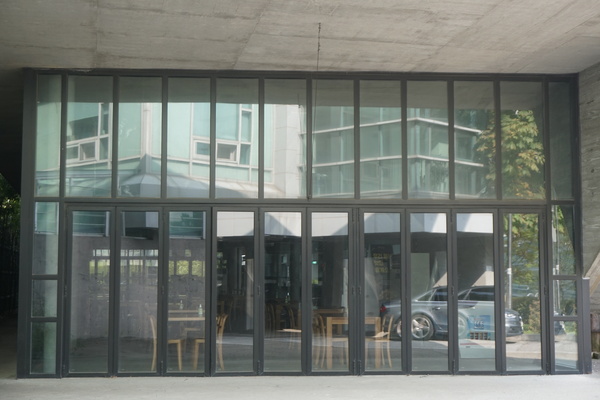
If you look at the posts related to the student council, you can see that there are many articles of criticism and slander against the student council even before the Sentimental Core incident. There are two types of posts that can be seen when searching with the keyword “college student council.” Some of these are articles posted on official accounts managed by the student council, and the other type is articles criticizing the entire school written by anonymous authors. Most of the articles directed at the student council were simply criticism. It can be seen that the writings are primarily slander and attacks rather than advice or constructive criticism. As of September 13, there were as many as 70 slanderous posts urging the resignation of the student council. Most of them were just demands for members to resign from the student council. In severe cases, there were abusive language, groundless claims, slander, and excessive curses. The average number of empathic posts ranged from 10 to 20. Many of these posts were under the shadow of anonymity. Pharos tried to hear their voices, but no one responded to the coverage. In the end, Pharos could not find any substantial criticism.
Currently, a big issue related to the Student Council is how they treated the violations of the student restaurant Sentimental Core’s quarantine rules and how well they are fulfilling their pledges. There is a survey with two sections. One is the Performance Rate of the Campaign Pledge, and the other is the circumstance about Kyonggi University’s student restaurant ‘Sentimental Core.’ Pharos examined what students thought of these two categories.
Section1. The Performance Rate of the Campaign Pledge
1. What do you think is the Performance Rate of the Campaign Pledge?
1-1. The Student’s awareness of the pledge
*the 51 Students Were Surveyed
-0~25%: 43.1%
-26~50%: 37.3%
-51~75%: 13.7%
-76~100%: 5.9%
1-2. The actual student council’s fulfillment rate of the pledges
- As of October 1, 2021, 22 out of 34 pledges were fulfilled.
- This graph also represents the ratio of pledges that have not been fulfilled due to COVID-19.
2. Which of the pledges do you think has a high-performance rate?
2-1. The Student’s awareness of the pledge
*the 51 Students Were Surveyed
-Communication(Listening): 9.8%
-Education: 5.9:
-Convenience Facilities: 23.5%
-Campus: 27.5%
-School’s Harmony: 13.7%
-Social Distancing(COVID-19): 5.9%
-Besides: 19.6%
3. Which of the pledges do you think has a low-performance rate?
3-1. The Student’s awareness of the pledge
*the 51 Students Were Surveyed
-Communication(Listening): 62.7%
-Education: 49%
-Convenience Facilities: 21.6%
-Campus: 15.7%
-School’s Harmony: 29.4%
-Social Distancing(COVID-19): 43.1%
-Besides: 7.8%
2-2&3-2. The actual student council’s fulfillment rate of the pledges
- As of October 1, 2021, 22 out of 34 pledges were fulfilled.
- This graph also represents the ratio of pledges that have not been fulfilled due to COVID-19.
*Referring to the overall pledge and implementation status of the student council for the 1st semester of 2021. Moreover, it will be carried out until October 1st of the second semester.
- Communication: 4 out of 6 pledges
- Education: 3 out of 6 pledges
- Policy: 5 out of 7 pledges
- Welfare: 6 out of 10 pledges
- Social Distancing: 4 out of 5 pledges
Let’s look at the distribution of students to the first response. As a result of the survey of students, 43.1% of the respondents had the highest implementation rate of 0% to 25%. Next, 26% to 50% accounted for the largest proportion with 37.3%, while 51% to 75% accounted for 13.7%. The last group, 76% to 100% was the lowest at 5.9%. However, the actual policy implementation rate of the student council was about 3 out of 7. Based on the actual implementation rate, the student recognition rate is the highest at 26 to 50 percent and 51 to 75 percent. The ratio of items that are considered high and items that are considered low-performance can be seen as the second and third ratios. The campus is the item that students responded with a high-performance rating among the student council pledges. The second highest item corresponds to convenience facilities. Conversely, the item that is judged to have the lowest implementation rate is listening. The next lowest part is education and response to COVID-19. Looking at the actual implementation of the student council, the part that showed the highest implementation is social distancing. More than half of all other communication, education, policy, and welfare items have currently been carried out. Among them, the lowest performance is in education. In the survey of students, they seem to think that listening is lower than education with low actual performance. Why is there a difference between student awareness and actual implementation? The reason why the campus and convenience in the student survey felt the degree of implementation can be seen in the following student opinions. “I had been to the bathroom and felt more comfortable than before.” He replied, “There was a stark difference even when viewed directly.” On the contrary, in the listening, which is perceived to have the lowest degree of implementation, the students answered as follows. “I hope to hear the opinions of students in a popularized way.” “The actual pledge items may have been fulfilled, but I don’t think actual communication is taking place properly. I think it’s a failure if communication doesn’t take place. In terms of education, you can feel it even though it is non-face-to-face, such as course registration or lecture plans, but I don’t think the pledge has been implemented well in this regard.”
Section2. The Circumstance about Kyonggi University’s Student Restaurant ‘Sentimental Core’
*the 51 Students Were Surveyed
1. Who do you think is responsible for facility management?
*51 Students Were Surveyed
-Sentimental Core’s Representative: 47.1%
-Facility Management Team: 68.6%
-Integrated Team: 39.2%
-Student Council: 2%
-Student Body President: 4%
-All the Parties: 4%
2. Who had to take the preventive measures against COVID-19?
-Sentimental Core’s Representative: 39.2%
-Student Body President: 33.3%
-Facility Management Team : 49%
-Integrated Team: 54.9%
-Secom Personnel or the Police: 6%
3. Was it the right decision to appease those who violated the quarantine guidelines?
*51 Students Were Surveyed
-O: 86.3%
-X: 13.7%
Let’s examine students’ opinions on violations of the school’s quarantine rules. In response to the first question in Section 2, ‘Who do you think is responsible for facility management?’ the highest answer is the facility management team at Kyonggi University. The second is Sentimental Core’s representative and the integrated team. In response, students said, “Unauthorized intrusion is the overall responsibility of the facility management target.” “The facility management team should have checked whether the school’s security or COVID-19 distance personnel are constantly observing the premises.” On the other hand, there is an opinion that the primary responsibility lies with the representative rather than the responsibility for the resident when judged legally. The integrated team was the highest for the person in charge of dissolution measures, followed by the facility management team, the Sentimental Core representative, and the student council president. As for the opinions on this, there were many opinions that it was correct for the university’s Secom personnel or the police to disband. In addition, there was a saying that the security personnel should have taken action at night. Finally, 86.3% of the respondents and a majority of the respondents to the survey answered that it was not correct to appease the people who violated the quarantine rules. On the contrary, 13.7% of respondents said the method of conciliation was correct. Opinions on this are as follows. “I think some understanding is necessary, but excessive conciliation is not appropriate.” “The actions should have been tough, not conciliatory, and even if they were graduates of Kyonggi University, entering the school building was wrong and those in charge should have evicted the trespassers.” Another opinion is that there may be situations in which graduates of the same school cannot be tough on one another.
After the Sentimental Core incident, Pharos conducted an interview with Hong Jeong-an, the president of the student council, discussing the student’s opinions. To begin with, we asked for an answer to the lack of usability of the listening system. Currently, non-face-to-face classes are being conducted due to COVID-19, so students’ access to schools is very low. There were opinions that the listening system did not perform well. However, when the listening system was installed, face-to-face classes were scheduled to be expanded according to the guidelines of the Ministry of Education. Therefore, the listening system was a communication channel for the second semester, but sadly non-face-to-face classes were confirmed due to the unexpected spread of COVID-19. The meaning of the pre-prepared listening system has become weak, but the school is confirming the listening system once a month. Currently, the student council is communicating with Kyonggi University students through direct phone calls, communication platforms, Facebook messages, KakaoTalk channels, and a listening system. Through the listening system, Kyonggi University achieved the eviction of the former president thanks to the help of 13,000 classmates. At the beginning of his term, the council tried to expand communication more than before, so why do students feel that there is a greater lack of communication? Pharos hopes that students themselves will reflect on the basic work progress of the student council and whether they lack interest in what activities the council is doing. Many students wanted to use the highly accessible Everytime app community and open the chat room. What these two communication channels have in common is anonymity. Of course, there is also a good function of anonymity, but it does not always function properly because there are so many postings and it is hard to answer the notes received in the student council’s Everytime account. If you send suggestions through any of the several communication channels currently in operation, you can receive answers within a day on weekdays through the student council.
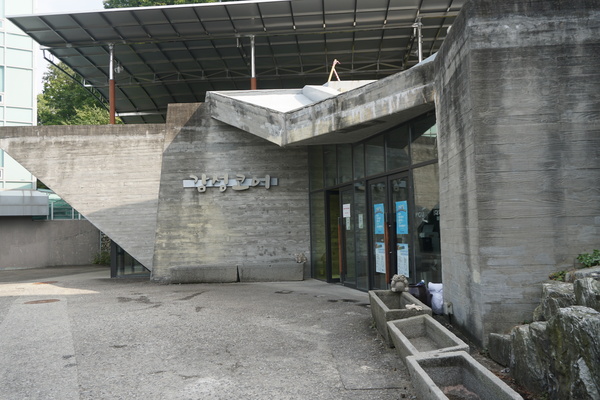
In this case, we tried to get the view of the student council about the Sentimental Core incident. A day after the report, student president Hong Jeong-an expressed his position. Pharos noticed that it is subjective to judge the speed of reaction. When we saw the comments on the community post, students were upset about the slow responses or lack of responses about the informants’ report and pictures. The president of the student council admitted his mistakes, such as insufficient response and inaccurate explanation. However, he said, he had good reason to respond late. He needs to check the facts and to deal carefully with the school. He also added that it required a verification process. The door of Sentimental Core was open for the rooftop construction workers’ toilet and purified water. He found out that the restaurant’s security is not under the school’s jurisdiction. Moreover, the student president promised to further strengthen security to prevent violations of quarantine rules at Sentimental Core. The penalties for violating the quarantine regulations of graduates would be handled by the school in a formal procedure. Local governments will punish the trespassers in accordance with the law.
If you look at the meeting held by the student council, you can confirm the facts about the Sentimental Core incident. For example, the president of the student council heard the conversations of the people in Sentimental Core that day and guessed that they were graduates. There was no relationship between the graduates and the student president. For such a reason, there were many false posts about the incident in the Everytime community. It is necessary not to follow reckless criticism, but to look at it from an objective perspective. The president of the student council said, “First of all, I sincerely apologize for not giving trust to my classmates through my short judgment. From now on, when these things happen, we will deal with them more carefully and firmly. Thank you for your kind advice and interest in Kyonggi University.”
The student council is an organization that works to make a better school life for students. In addition, the position of the student president, the representative of the student council, feels a lot more pressure and responsibility. It is necessary to act more carefully because every word he says has a lot of concentration and influence. However, we should refrain from hiding behind the anonymous wall and criticizing it without looking back or accepting without reserve. Everyone has freedom of expression, but careless expression can greatly hurt someone else. Confucius said, “Blocking the sound of the public is more difficult than blocking the river.” It is right to focus on the public’s sound, but you’ll have to check if the sound is true.
Editor-in-Chief·GONG JIN YOUNG·wlsdud03520@naver.com
Planning Editor·KIM DA HUN·ekq8458@kyonggi.ac.kr
Management Editor·CHOI HYUN JEONG·chj010627@naver.com
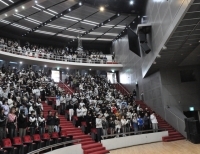 What Happened in KGU? : 수원캠퍼스 학생총회 편
On April 4th, a general meeting of students was held in the Tele-convention center at the Suwon campus. The contents were the same as the general meeting of students in the Seoul campus: the first part was for agenda announcement, the second part was about the Membership Training for whole university, and the third part was simple Q&A time. In the first part, the agendas were all the same as the ones for the Seoul campus, and the result of the ...
What Happened in KGU? : 수원캠퍼스 학생총회 편
On April 4th, a general meeting of students was held in the Tele-convention center at the Suwon campus. The contents were the same as the general meeting of students in the Seoul campus: the first part was for agenda announcement, the second part was about the Membership Training for whole university, and the third part was simple Q&A time. In the first part, the agendas were all the same as the ones for the Seoul campus, and the result of the ...

 [타 대학보 축사] 늘 그랬듯, 묵묵히
[타 대학보 축사] 늘 그랬듯, 묵묵히
 [와이파이] 큰 박스에 달랑 물건 하나, 과대포장 규제 정책 시행은 언제쯤
[와이파이] 큰 박스에 달랑 물건 하나, 과대포장 규제 정책 시행은 언제쯤
 [문화산책] 이 세계는 멋져 보이지만 모두 환상이야
[문화산책] 이 세계는 멋져 보이지만 모두 환상이야
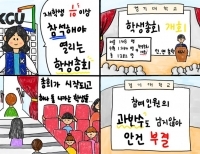 [네컷만화] 학생총회
[네컷만화] 학생총회

 목록
목록







